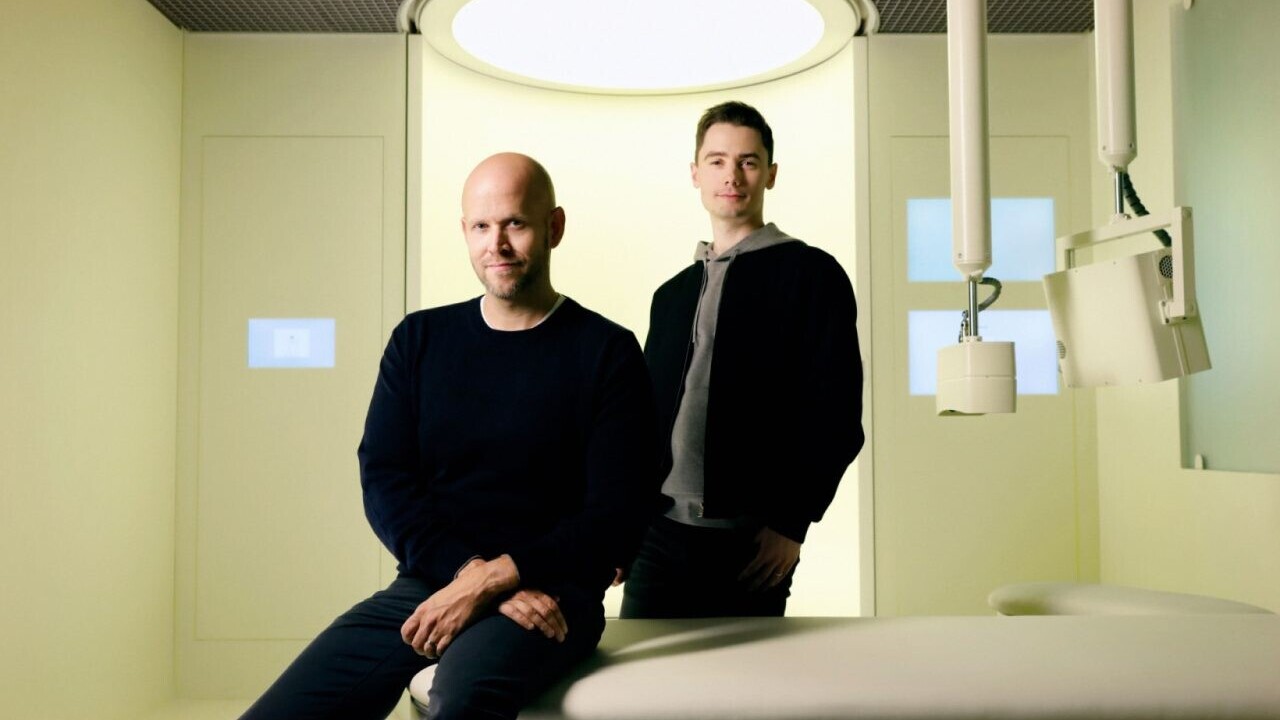
Spotify boss Daniel Ek has invited the good folk of London to step inside his body scanners.
Upon entry, the futuristic machines will analyse their health. As they stand under a cold, white light, dozens of scanners will track millions of anatomical data points.
Their blood, heart, and skin will all be examined. Algorithms will then asses the risks of strokes, heart disease, cancer, and diabetes.
In an instant, the results will arrive. A doctor will provide a personalised consultation.
The clinic opened today in Marylebone, a chic neighbourhood in London. At £299 a pop, the appointments don’t come cheap. But the price point has already proven attractive in Ek’s homeland of Sweden.

Ek takes on medtech
The scanning system emerged from Ek’s fascination with preventative healthcare. After Spotify’s IPO made him a billionaire overnight, the streaming pioneer turned his passion into a business.
Ek sought assistance from his compatriot Hjalmar Nilsonne, who previously helmed smart energy startup Watty. In 2018, the duo founded body-scanning startup Neko Health.
Last year, the company’s first clinic opened in Stockholm. Within two hours of the launch, the scanner was fully booked. Over 22,000 people are now on the waiting list.
The London site expands the startup’s capacity. Neko can also point to growing evidence of the tech’s benefits.
In its first year of operation, the company scanned 2,707 people. Around 14% required medical treatment, while 1% received potentially life-saving treatment. None were aware of their conditions before the scans.
The figures substantiate Neko’s case for predictive diagnostics.
“Our healthcare systems were designed decades ago, they haven’t kept pace with rising costs or demand — a trend that we collectively need to find a way to reverse,” Nilsonne said.
“To bend the cost curve of healthcare, we need to shift towards proactive, preventive care.”
Get the TNW newsletter
Get the most important tech news in your inbox each week.




